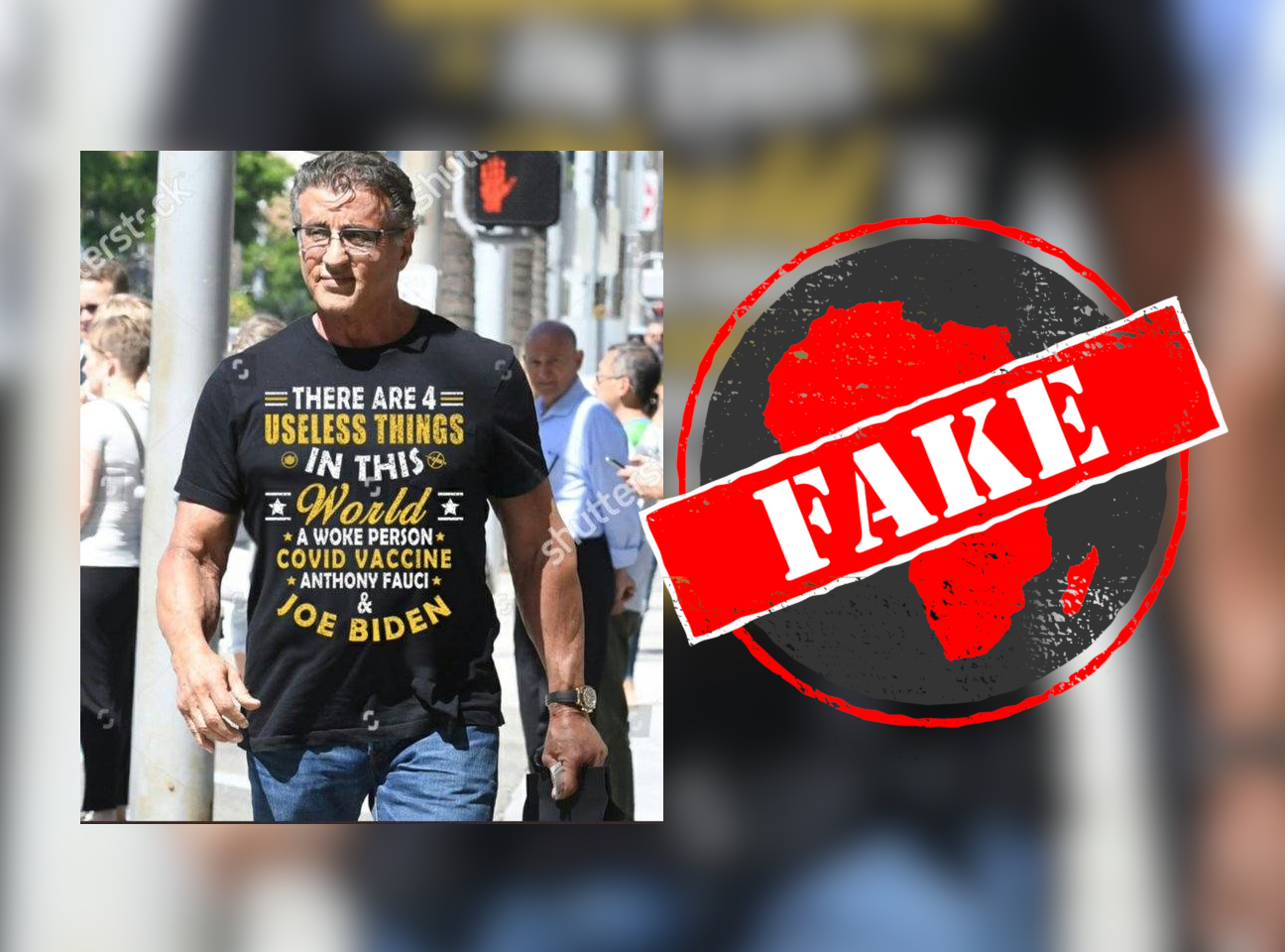An image posted on Facebook in South Africa, and elsewhere on Twitter, shows Hollywood actor Sylvester Stallone walking down a street wearing a black T-shirt that expresses strong views about US politics and the Covid pandemic.
“There are 4 useless things in this world,” text on the shirt reads. “A woke person, Covid vaccine, Anthony Fauci & Joe Biden.”
The Oxford English Dictionary defines “woke” as “alert to racial or social discrimination and injustice”, explaining that it originated in varieties of English spoken by black people in the US. The word has more recently become something of a slur and a joke used by people opposed to “wokeness”.
Distrust of Covid vaccines has become a divisive political issue in the US and several other countries.
Dr Anthony Fauci is scientist and medical doctor who heads the US National Institute of Allergy and Infectious Diseases. He also spearheaded the US response to Covid, earning him accolades but also attacks by Republican US politicians and their supporters.
Joe Biden of the Democratic Party was elected US president in November 2020, beating Donald Trump. Fauci had headed Trump’s coronavirus taskforce. After the election, he continued this role in the US presidency and became Biden’s chief medical adviser.
But did Stallone, star of movies such as Rocky and Rambo and their many sequels, really walk in public wearing a T-shirt that called “a woke person”, Covid vaccines, Fauci and Biden the world’s “four useless things”? We examined the image.

Stallone out and about in Los Angeles – in 2018
The image includes watermarks indicating it is licensed by the stock photo agency Shutterstock. So Africa Check ran a Google image search with the keywords “Sylvester Stallone Shutterstock”.
This led us to a series of photos on the Shutterstock website, all captioned “Sylvester Stallone out and about, Los Angeles, USA - 28 Jun 2018.”
One of them is the original of Stallone walking down a street in a black T-shirt. But in the photo, his shirt is blank – there’s no list of the “four useless things”. And the photo was taken 18 months before the new coronavirus that causes Covid was first reported to the World Health Organization, on 31 December 2019.
The image of Stallone has been altered.
Republish our content for free
For publishers: what to do if your post is rated false
A fact-checker has rated your Facebook or Instagram post as “false”, “altered”, “partly false” or “missing context”. This could have serious consequences. What do you do?
Click on our guide for the steps you should follow.
Publishers guideAfrica Check teams up with Facebook
Africa Check is a partner in Meta's third-party fact-checking programme to help stop the spread of false information on social media.
The content we rate as “false” will be downgraded on Facebook and Instagram. This means fewer people will see it.
You can also help identify false information on Facebook. This guide explains how.


Add new comment